Eden Chlamtáč
A Polynomial-Time Approximation for Pairwise Fair $k$-Median Clustering
May 16, 2024
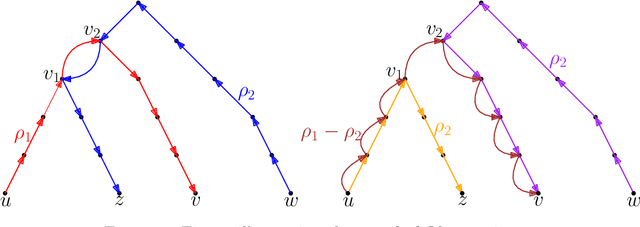
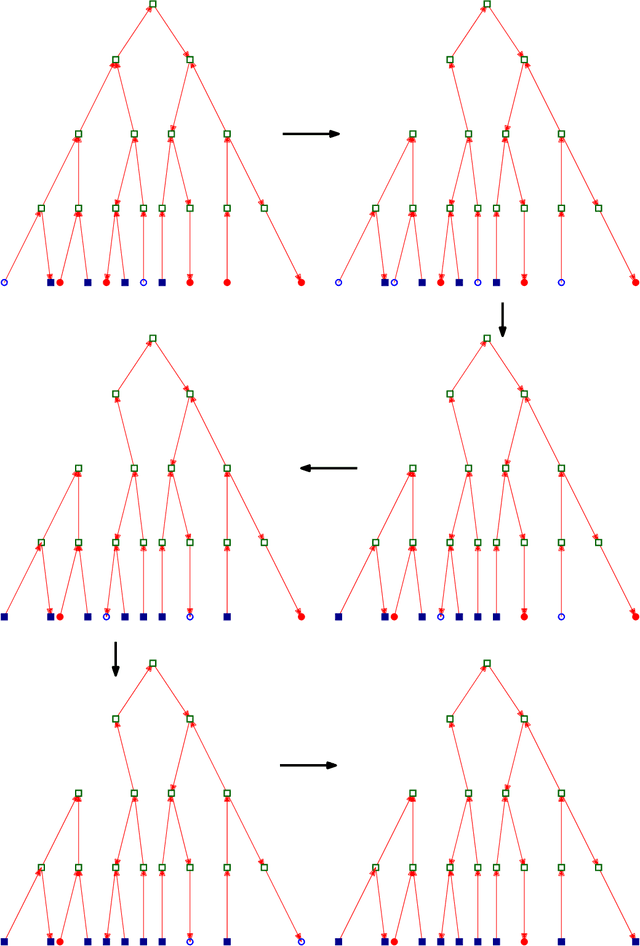
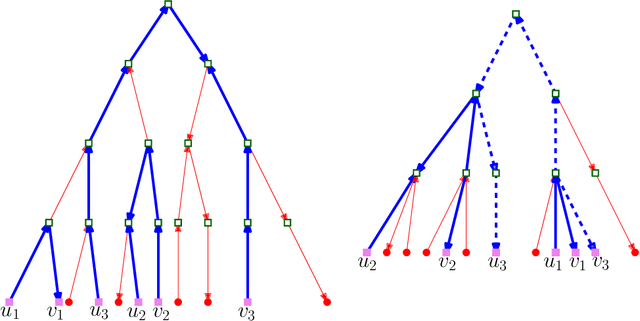
Abstract:In this work, we study pairwise fair clustering with $\ell \ge 2$ groups, where for every cluster $C$ and every group $i \in [\ell]$, the number of points in $C$ from group $i$ must be at most $t$ times the number of points in $C$ from any other group $j \in [\ell]$, for a given integer $t$. To the best of our knowledge, only bi-criteria approximation and exponential-time algorithms follow for this problem from the prior work on fair clustering problems when $\ell > 2$. In our work, focusing on the $\ell > 2$ case, we design the first polynomial-time $(t^{\ell}\cdot \ell\cdot k)^{O(\ell)}$-approximation for this problem with $k$-median cost that does not violate the fairness constraints. We complement our algorithmic result by providing hardness of approximation results, which show that our problem even when $\ell=2$ is almost as hard as the popular uniform capacitated $k$-median, for which no polynomial-time algorithm with an approximation factor of $o(\log k)$ is known.
Approximating Fair Clustering with Cascaded Norm Objectives
Nov 08, 2021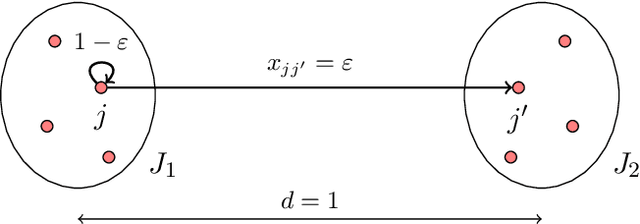
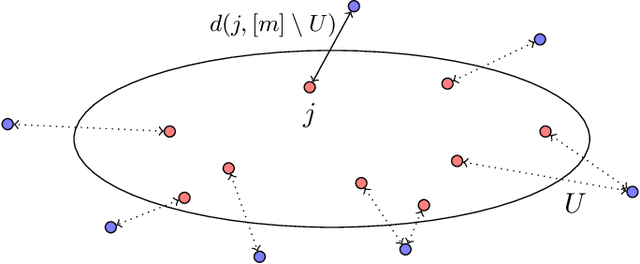
Abstract:We introduce the $(p,q)$-Fair Clustering problem. In this problem, we are given a set of points $P$ and a collection of different weight functions $W$. We would like to find a clustering which minimizes the $\ell_q$-norm of the vector over $W$ of the $\ell_p$-norms of the weighted distances of points in $P$ from the centers. This generalizes various clustering problems, including Socially Fair $k$-Median and $k$-Means, and is closely connected to other problems such as Densest $k$-Subgraph and Min $k$-Union. We utilize convex programming techniques to approximate the $(p,q)$-Fair Clustering problem for different values of $p$ and $q$. When $p\geq q$, we get an $O(k^{(p-q)/(2pq)})$, which nearly matches a $k^{\Omega((p-q)/(pq))}$ lower bound based on conjectured hardness of Min $k$-Union and other problems. When $q\geq p$, we get an approximation which is independent of the size of the input for bounded $p,q$, and also matches the recent $O((\log n/(\log\log n))^{1/p})$-approximation for $(p, \infty)$-Fair Clustering by Makarychev and Vakilian (COLT 2021).
 Add to Chrome
Add to Chrome Add to Firefox
Add to Firefox Add to Edge
Add to Edge